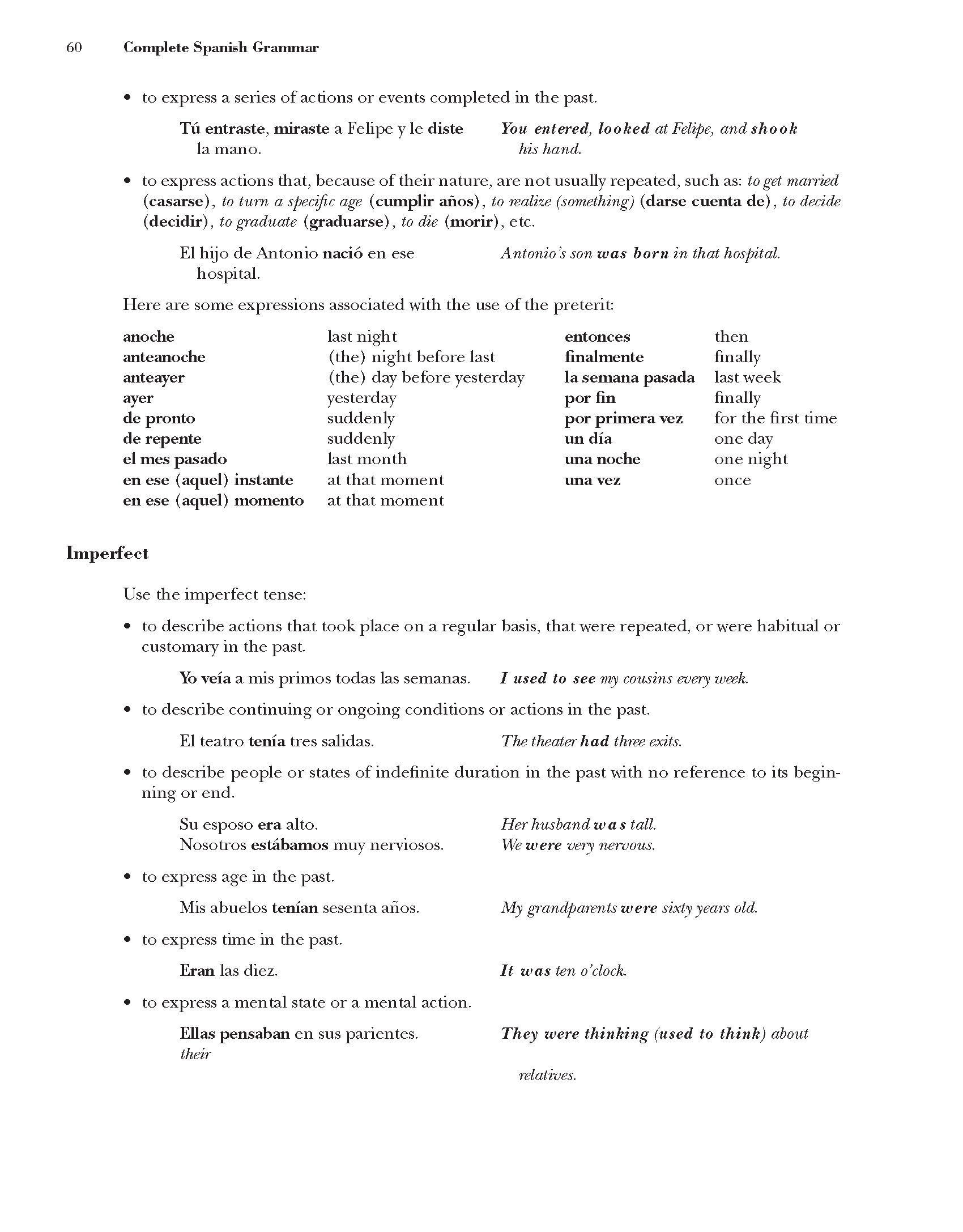CSG071

60
Complete Spanish Grammar
• to express a series of actions or events completed in the past.
Tu entraste, mir as te a Felipe y le diste You entered, looked at Felipe, and shook la mano. his hand.
• to express actions that, because of their naturę, are not usually repeated, such as: toget married (casarse), to tum a specific age (cumplir anos), to realize (something) (darse cuenta de), to decide (decidir), to graduate (graduarse), to die (morir), etc.
El hijo de Antonio nació en ese Antonio s son was bom in that hospital.
hospital.
Here are some expressions associated with the use of the preterit:
entonces finalmente la semana pasada por fin
por primera vez uii dia una noche una vez
then finally last week finally
for the first time one day one night
once
anoche
anteanoche
anteayer
ayer
de pronto
de repente
el mes pasado
en ese (aquel) instante
en ese (aquel) momento
last night
(the) night before last
(the) day before yesterday
yesterday
suddenly
suddenly
last month
at that moment
at that moment
Imperfect
Use the imperfect tense:
• to describe actions that took place on a regular basis, that were repeated, or were habitual or customary in the past.
Yo veia a mis primos todas las semanas. I used to see my cousins euery week.
• to describe continuing or ongoing conditions or actions in the past.
El teatro tema tres salidas. The theaterhad three exits.
• to describe people or States of indefinite duration in the past with no reference to its begin-ning or end.
Su esposo era alto. Her husband was tali.
Nosotros estabamos muy nerviosos. We were very neroous.
• to express age in the past.
Mis abuelos tenian sesenta anos. My grandparents were sixty years old.
• to express time in the past.
Eran las diez. It was ten o’clock.
• to express a men tal State or a men tal action.
Elias pensaban en sus parientes. They were thinking (used to think) about
their
relatives.
Wyszukiwarka
Podobne podstrony:
CSG089 78 Complete Spanish Grammar • to express hypothetical actions or events which may or may not
CSG065 54 Complete Spanish Grammar Gertain expressions of time stress the customary or repetitive na
CSG155 144 Complete Spanish Grammar Impersonal expressions followed by the indicative include: es ci
CSG309 298 Complete Spanish GrammarOther ]egative Expres$ions Some of the words you have studied in
CSG093 82 Complete Spanish Grammar Yo mismo(a) escogi el nu mero I my s elf chose
CSG143 Complete Spanish Grammar Notę that there are two parts or clauses (clausulas) in the precedin
CSG010 Introdnition Practice Makes Perfect: Complete Spanish Grammar is designed as a tool for revie
więcej podobnych podstron